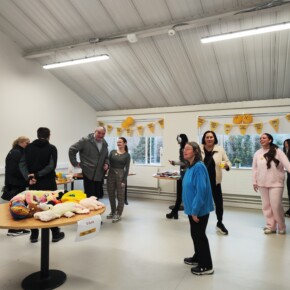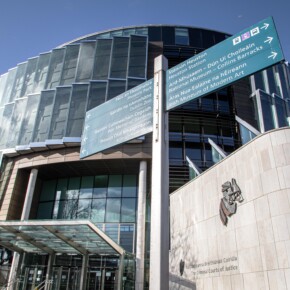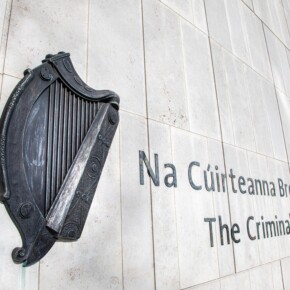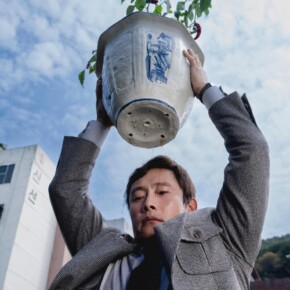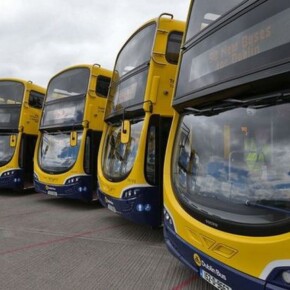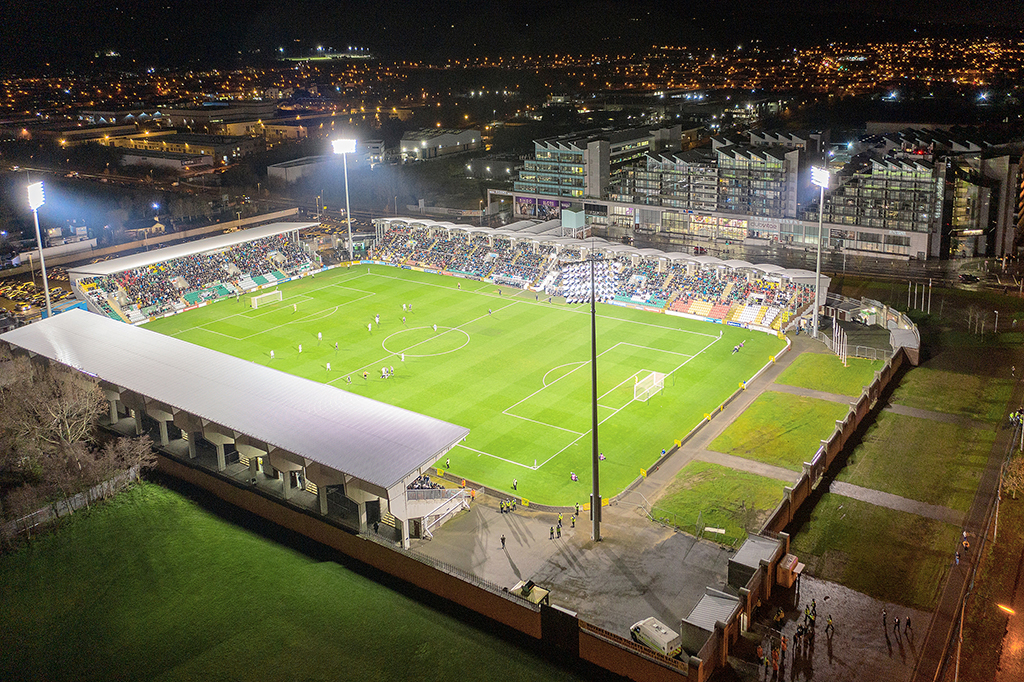Remembering the Battle for Liberty Hall 100 years ago
Padraig Conlon 30 May 2024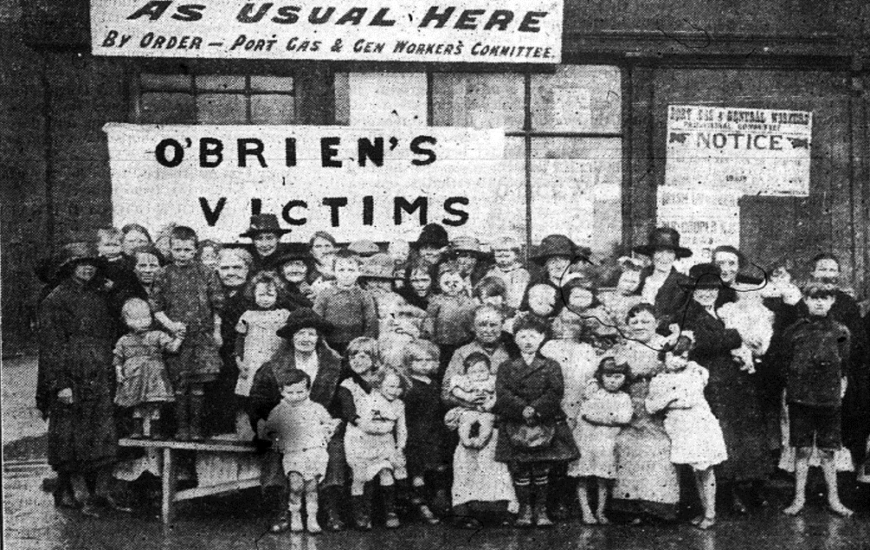
Gerry Watts
One hundred years ago, Dublin might have thought that with the War of Independence and the Civil War finally over in 1923, peace would be the order of the day.
But trouble was brewing.
James Larkin, leader of the 1913 Lockout, returned to Ireland in April 1923 and the workers of Dublin were emboldened by his arrival.
Loyal followers of Larkin were known as Larkinites.
Soon, the Irish Transport and General Workers’ Union, of which Larkin was General Secretary, was to erupt into its own version of civil war.
The gas workers employed by the Dublin Gas Company were one of the most militant sections of the Transport Union, and on 14 May 1924 they went on strike.
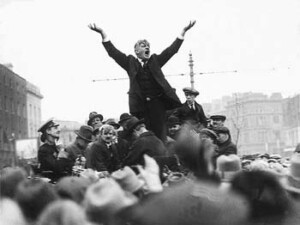
Larkin (pictured above) had been expelled from the Transport Union three months earlier by the union’s executive committee when he had tried to retake control of the union upon his return.
But the gas workers, no friends of the executive committee, wanted Larkin back in control of the union and they invited him to be their leader in the dispute.
The gas workers section of the union was based in Liberty Hall on Eden Quay, in the heart of Dublin’s docklands.
Larkin instructed the Dublin workers not to pay their membership payments to the union’s head office but to the gas workers Strike Committee in Liberty Hall.
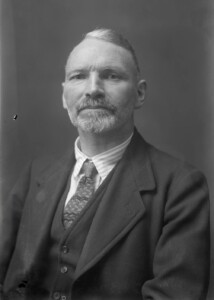
The union’s executive committee, led by William O’Brien (pictured above), was determined to stamp out the rebellion of the gas workers before it spread to the rest of the Dublin workforce.
At the same time, it wanted to smash Larkin’s connection with the Dublin membership.
A formidable strategist, William O’Brien opened a new office for the union in Luke Street on the south side of the quays and secretly instructed that Liberty Hall was to be closed.
However, the gas workers, overwhelmingly Larkinites, learned of O’Brien’s plan and at around 11 pm on 24 May a group of them gathered inside Liberty Hall.
They approached the caretaker Peter Ennis as he was locking up. Barney Conway of Townsend Street told Ennis they were taking possession of the hall.
A few hours later, at around 2 am, William O’Brien rang the Detective Branch in Dublin Castle and said that a group of armed men had forced their way into Liberty Hall, and that he wanted them removed.
Detective Branch rang Store Street police station and the Dublin military authority.
At 3.00 am a military detachment from Collins’ Barracks drew up alongside the quays near Liberty Hall and awaited further instructions.
At 5.00 am they sprang into action. An armoured car and a lorry with a large machine gun mounted on its back swung into Beresford Place.
The foot soldiers were accompanied by Branch detectives and Store Street constables. The machine gun was trained on the front of the hall.
A Branch detective, attended by two police constables, banged on the door with the butt of his pistol.
Aware of the large military presence outside, the 45 Larkinites decided that discretion was the better part of valour, and let them in.
Once inside, they quickly established that the Larkinites were unarmed.
They then ransacked the premises but again no arms were found.
Unable to arrest the Larkinites for possession of firearms, they were arrested for taking unlawful possession of the Hall. Barney Conway protested: “I am Chairman of the North Wall Workers.
“We are all members of the union and helped to build this place. We have as much right to be in here as O’Brien and his crowd.”
Despite his protest, the forty-five were taken off to the Bridewell station, where they were detained. A military guard was posted inside the building.
At 12 noon the following day, the military guard was withdrawn. Immediately, Larkin and others entered the hall.
From an upstairs window overlooking Beresford Place, Larkin denounced O’Brien: “A conspiracy exists between the so-called Free State Government and Mr O’Brien!
“They are out to destroy this union and suppress the working man!
“Keep paying your union dues to the gas workers Strike Committee.
“There will be a work stoppage until the 45 are freed!”
Larkin left, and the others remained inside the hall.
Later that night, O’Brien rang Store Street police station and informed them that Liberty Hall was to be closed indefinitely, and asked the police to force the entrance and arrest the Larkinites.
Police Commissioner Murphy ordered that a guard only be placed around the Hall.
Murphy then told Minister for Justice, Kevin O’Higgins that he did not see why the police should have to evict the Larkinites a second time: “O’Brien had his chance to retake the hall and didn’t do so!”
On the 28 May, the newspapers reported that the Transport Union’s fighting-force, the One Big Union Defence League, descended on Liberty Hall to evict the Larkinites. Two battalions in lorries and one on foot.
They forced the door and quickly took over the hall, ‘ordering Larkin’s guards, none too politely, to get out!’
The Larkinite newspaper The Irish Worker reported a different version: “A military vehicle pulled up at Beresford Place and disgorged a gang of armed hooligans.
“Without a warrant, and acting on behalf of the government, they ordered the men out at the point of a revolver.”
Liberty Hall had been cleared of the Larkinites, and thereafter they had no access to the building.
William O’Brien, now General Secretary of the Transport Union, had won the Battle for Liberty Hall, and he kept the hall closed for many years.
The 45, who were still in police custody, went on hunger strike to protest their innocence.
Shortly after, the Larkinites formed a new union, the Workers’ Union of Ireland, headed by James Larkin.
The two unions spent the following years fighting with each other.
There were pitched battles along the quays, the timber yards, the fish market and elsewhere. Both unions were fighting for control, and new members.
Rumours of coercion, strike-breaking, and the use of guns abounded. Blood was spilt and friendships destroyed.
Many years later, in 1990, the two unions reunited and formed the Services, Industrial, Professional and Technical Union, known today as SIPTU, based at Liberty Hall, Dublin.


